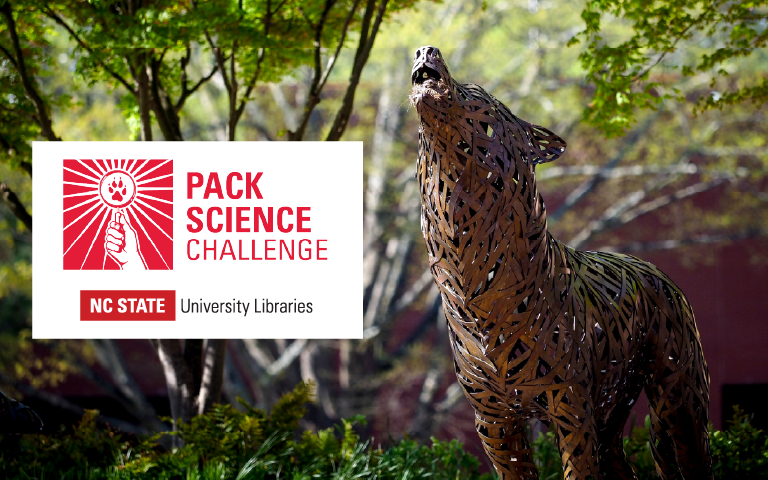
The Pack Science Challenge runs March 25 to April 12.

The Pack Science Challenge runs March 25 to April 12.
Take a moment to listen to the sounds all around you. Do you hear the creak of your chair, the hum of the fridge, the birds outside, the cars passing your building?
This year’s Pack Science Challenge wants to know what you hear and how our acoustic environment affects how you feel. Part of the Leadership in Public Science cluster's Citizen Science Campus program, the annual challenge engages students as collaborators in scientific research about their environment. This project can be a fun mindfulness activity, connecting you to our campus environment, but your participation also contributes valuable data to a research project seeking to better understand how sound affects your concentration, wellness, and even bird diversity. The challenge runs from March 25 to April 12.
This spring, the Pack Science Challenge partners with Sound Around Town, a public science project about human perceptions of outdoor acoustic environments and how soundscapes affect our well-being. Over the three weeks of the challenge, students and other members of the NC State community are asked to collect data about the acoustic environment of campus by completing a listening task at multiple "engagement stations" across campus.
The engagement stations will feature tools to measure sound level, sky quality, and bird diversity. Using those—and your own ears and eyes—you will immerse yourself in the acoustic environment, log each sound that you hear, and rate its loudness and pleasantness. When you finish, you receive a visualization of your soundscape to keep.
Sound Around Town asks you to sort sounds into three categories as defined by soundscape ecologist Bernie Krause: biophony (sounds from non-human living things), geophony (sounds from inanimate natural sources), and anthrophony (sounds made by humans). The anthrophony category is further divided into transportation sounds (cars, airplanes), mechanical sounds (leafblowers, construction), and social sounds (church bells, people talking).
“This is a great project for raising people's awareness about their acoustic environment,” says Karen Ciccone, Lead Librarian for Public Science at the Libraries. “You don't normally think about how sound affects your mood and your health. We tend to take it for granted and assume that environmental sounds can't be changed. The first step toward creating a healthier acoustic environment would be this awareness about sounds on campus. The same goes for light pollution, which is a secondary aspect of the project.”
Co-PIs for this year’s Citizen Science Challenge are Deja Perkins, a graduate research assistant at the Center for Geospatial Analytics, Center for Earth Observation, and Caren Cooper, a professor of Forestry and Environmental Resources and a Chancellor’s Faculty Excellence in Leadership in Public Science University Faculty Scholar.
The sky quality meters at the engagement stations are available for checkout through the Citizen Science lending collection at the Libraries, and the decibel meters are provided by the Pack Science Challenge team. Wicked Problems, Wolfpack Solutions interns Jonathan Rogers, Matthew Menon, and Victoria Mathis, sponsored by the Global One Health Academy, also supported the project.